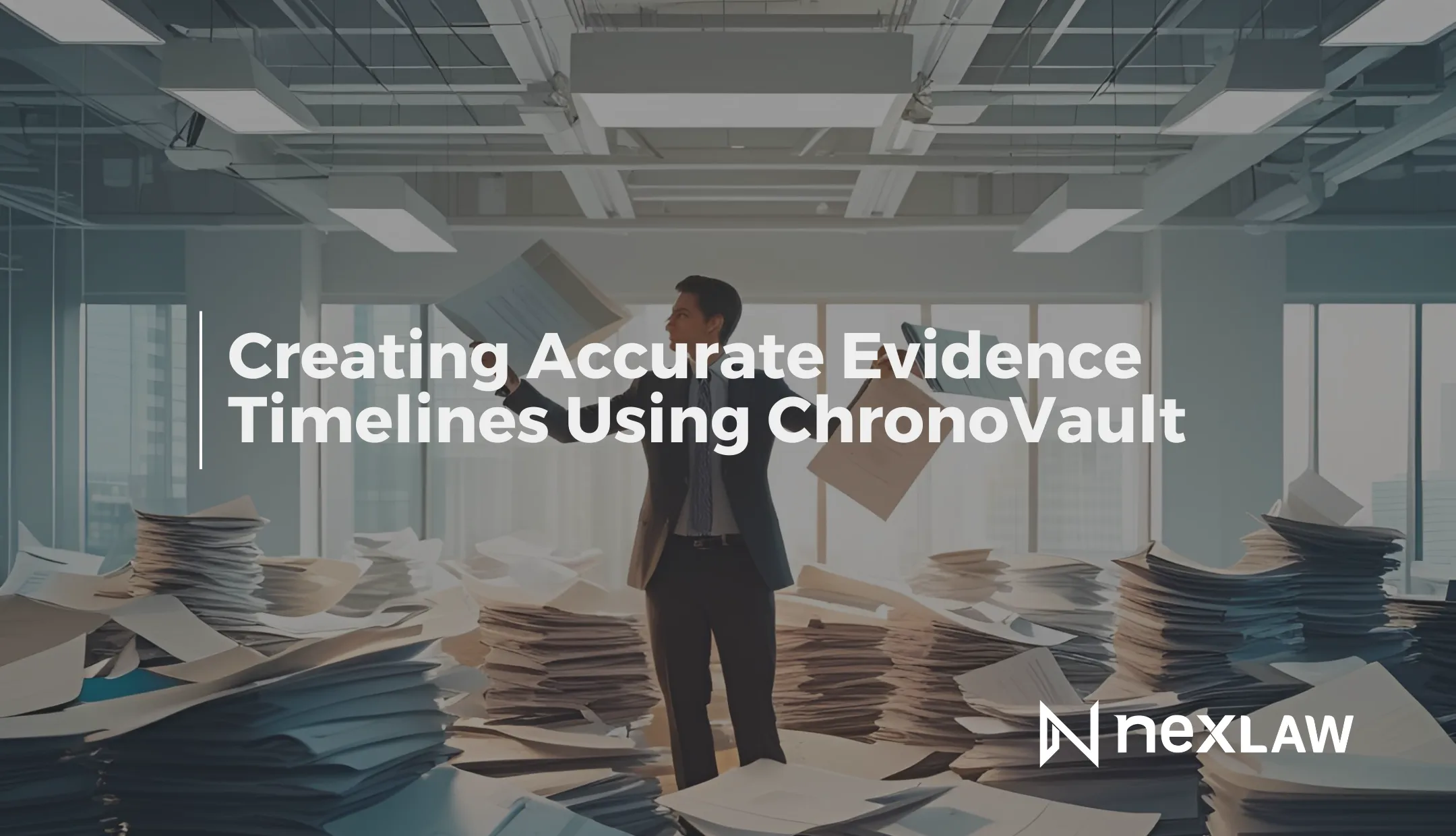E-Disclosure Software: Regulatory Compliance and Automation Revolution
E-disclosure software has emerged as a critical component of modern legal technology infrastructure, with the global legal technology market projected to reach USD 46.76 billion by 2030, growing at 10.2% CAGR. This growth is driven by increasing regulatory complexity, stringent compliance requirements, and exponential growth of electronically stored information requiring systematic disclosure management.
Unlock Legal Insights Instantly!
The regulatory landscape has intensified significantly, with new privacy laws taking effect across multiple jurisdictions. Five comprehensive state privacy laws became effective in January across Delaware, Iowa, Nebraska, New Hampshire, and New Jersey, adding to the complex web of disclosure obligations organizations must navigate.
Regulatory Environment Driving Innovation
Expanding Privacy Law Requirements
The wave of state privacy laws continues reshaping e-disclosure requirements, with eight existing laws now joined by five new comprehensive frameworks demanding sophisticated disclosure management capabilities. These regulations require organizations to implement advanced data classification systems, automated consent management, and detailed disclosure tracking mechanisms.
Recent regulatory developments include enhanced disclosure requirements under the California Consumer Privacy Act (CCPA), mandating annual policy updates at minimum and immediate updates when material changes occur. Organizations face penalties reaching $7,988 per intentional violation, making automated compliance monitoring essential.
The federal landscape adds complexity, with the Department of Justice implementing new rules effective April 8 that restrict transactions involving bulk U.S. sensitive personal data. These regulations require comprehensive tracking capabilities for:
- Precise geolocation data and biometric identifiers
- Personal health information and financial data
- Government-related data across transaction types
- Cross-border data transfers and vendor agreements
ESG Disclosure Evolution
Environmental, Social, and Governance (ESG) disclosure requirements continue evolving rapidly, with regulatory compliance becoming a bigger share of companies’ ESG spending. The EU’s anticipated omnibus regulation will consolidate and harmonize CSRD, CSDDD, and Taxonomy Regulation requirements while reducing some compliance burdens.
Extended Producer Responsibility (EPR) requirements have emerged as a new focus area, with implementations across the United States and Europe creating additional disclosure obligations requiring sophisticated tracking systems.
Technology Solutions Addressing Compliance Challenges
Automated Disclosure Management Platforms
The disclosure management market is experiencing explosive growth, projected to reach USD 5.24 billion by 2033 with 17.4% CAGR. This growth reflects increasing adoption of XBRL and other structured data formats by regulatory bodies worldwide, driving demand for sophisticated automation capabilities.
Modern e-disclosure software incorporates advanced features addressing complex regulatory requirements:
- Regulatory framework integration with built-in compliance templates and automated updates
- Multi-jurisdiction support handling varying disclosure requirements across different legal systems
- Automated workflow orchestration routing information through appropriate approval processes
- Audit trail generation providing comprehensive tracking for regulatory reviews
These platforms eliminate manual intervention while maintaining controls and documentation required for regulatory defensibility. Advanced systems now provide predictive compliance analytics that identify potential violations before they occur.
AI-Powered Classification and Analysis
Artificial intelligence has become integral to modern e-disclosure software, with 32.40% of law firms expecting increased technology investments, largely driven by AI adoption. Advanced AI capabilities now include automated document classification, intelligent privilege detection, and predictive compliance risk assessment.
Small Language Models (SLMs) are gaining prominence in legal technology, offering privacy advantages, reduced latency, and cost-effective customization for compliance-specific tasks. These models operate on devices with limited computational power while maintaining performance comparable to larger systems.
Retrieval-augmented generation (RAG) technology combines language models with external knowledge bases to enhance disclosure accuracy. This approach ensures generative AI tools are grounded in precise regulatory requirements and current legal standards, reducing compliance risks.
Zero-Trust Security Implementation
Cybersecurity concerns have reached critical importance in e-disclosure software, leading to widespread adoption of zero-trust security frameworks. This approach assumes no user or system can be automatically trusted, requiring continuous verification at every disclosure process stage.
Enhanced security measures now standard include multi-factor authentication with role-based access controls, end-to-end encryption for data in transit and at rest, granular access controls designed specifically for disclosure workflows, and continuous monitoring of user activities and system access.
Industry-Specific Compliance Requirements
Financial Services Disclosure Management
Financial technology companies face particularly complex disclosure requirements, with regulations affecting how companies structure data, define user flows, and handle risk exposure. The Electronic Fund Transfer Act and CFPB Regulation E require resolution of transfer errors within 45 days, demanding automated tracking and reporting capabilities.
Truth in Lending Act (TILA) obligations for credit card disclosures, rate increases, and payment allocations require sophisticated workflow management to ensure timely and accurate disclosures. RegTech solutions now provide advisory services focusing on the biggest risk areas including online libraries of compliance regulations with automated updates and transaction monitoring for suspicious activity.
Healthcare Data Disclosure Compliance
Consumer health data laws present unique challenges, with Washington state providing consumers private rights of action for violations while other laws only allow regulator enforcement. Organizations must implement comprehensive tracking systems that monitor health data usage across all business processes.
The Colorado Anti-Discrimination in AI Law, effective February 2026, establishes requirements for developers and deployers of high-risk artificial intelligence systems with specific disclosure requirements for AI systems intended to interact with consumers.
Cloud Migration and Platform Consolidation
Vendor consolidation continues accelerating, with law firms seeking to streamline their technology stacks rather than managing multiple disparate systems. E-disclosure software providers are responding by offering comprehensive platforms that integrate disclosure management with broader compliance and case management capabilities.
Cloud-based solutions dominate the legal technology landscape, with approximately one-third of firms implementing cloud-based document management models. The American Bar Association reports that cloud computing usage among law firms increased 10% in just one year, reflecting growing confidence in cloud security and operational benefits.
Modern cloud-native e-disclosure platforms provide scalable processing power adapting to varying disclosure volumes, real-time collaboration capabilities across geographic locations, automatic software updates ensuring current regulatory compliance, and integrated backup and disaster recovery protecting critical disclosure data.
The shift toward distributed work environments has accelerated adoption of cloud-based e-disclosure solutions that support remote collaboration while maintaining security standards. Legal professionals require access to disclosure systems from various locations and devices without compromising data security or regulatory compliance.
How NexLaw’s NeXa Platform Enhances Disclosure Workflows
NexLaw’s NeXa platform is built to address the evolving demands of modern e-disclosure, combining powerful legal research with intelligent compliance tools.
The Deep Research feature enables legal professionals to rapidly surface relevant regulations, compliance obligations, and jurisdictional nuances—making it easier to meet complex disclosure requirements.
With Documents Insight, legal teams gain clarity on regulatory materials and their real-world implications, especially when navigating newly issued rules or assessing how changes affect ongoing cases.
For cross-border operations, Compare Jurisdictions offers a side-by-side view of disclosure obligations across legal systems helping teams align strategy and ensure jurisdiction-specific compliance.
Contract Due Diligence analyzes contractual language for compliance and data handling requirements, while Analyze Pleadings provides deep insights to shape disclosure strategy and regulatory responses.
Future Market Projections and Emerging Technologies
As global compliance pressures increase, the e-disclosure software market is expected to grow at a 10.1% CAGR through 2030. Platforms focused on automation and compliance intelligence are leading the way.
What’s next?
-
AI-driven regulation interpretation to streamline compliance reviews
-
Enterprise risk system integration for unified governance
-
Blockchain for tamper-proof audit trails and document authenticity
-
Predictive analytics to flag potential violations before they happen
-
Book a Demo – See how NeXa elevates your e-disclosure and compliance workflow
-
Explore Plans – Includes a free 3-day trial to test NexLaw in your environment
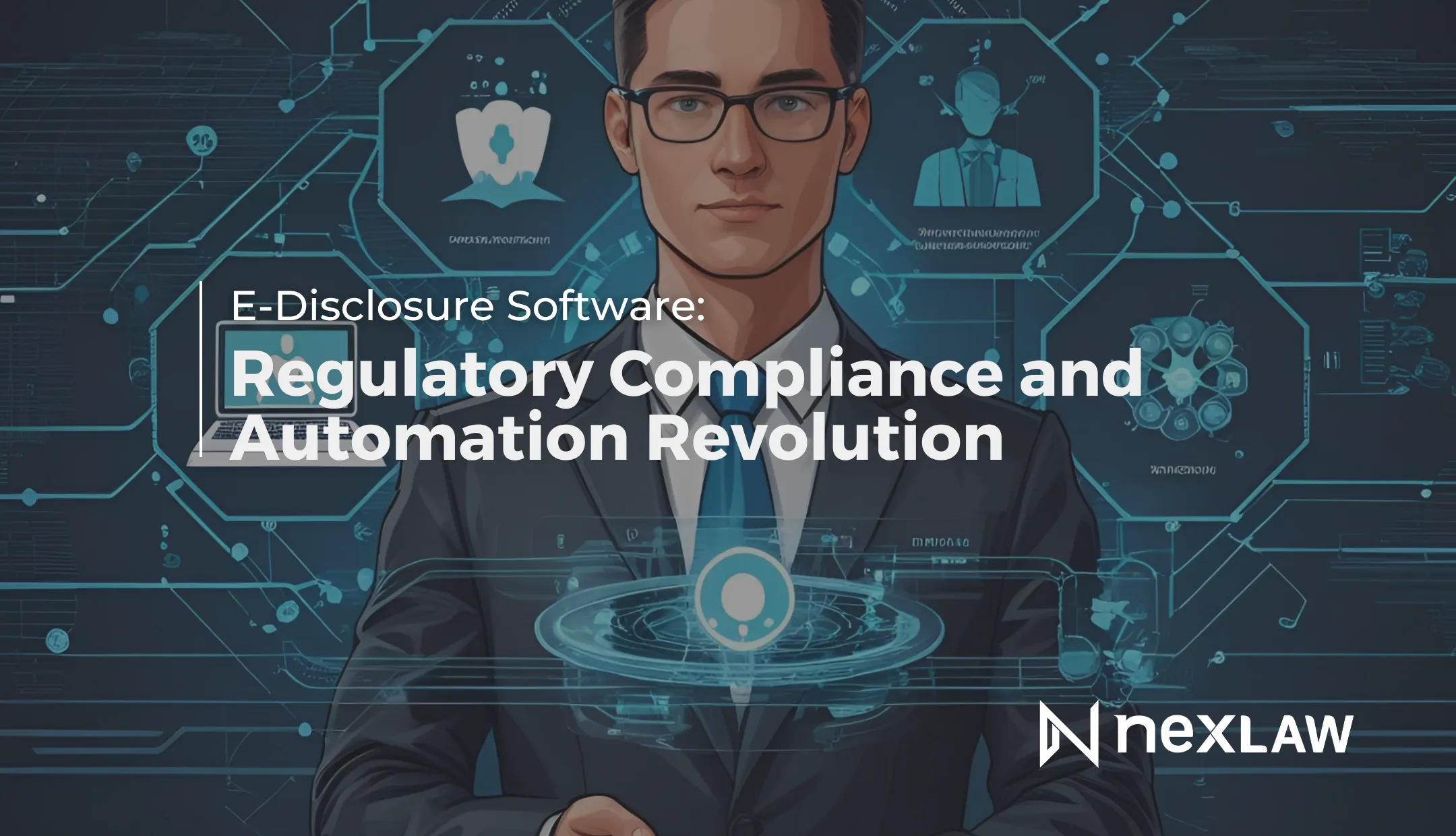
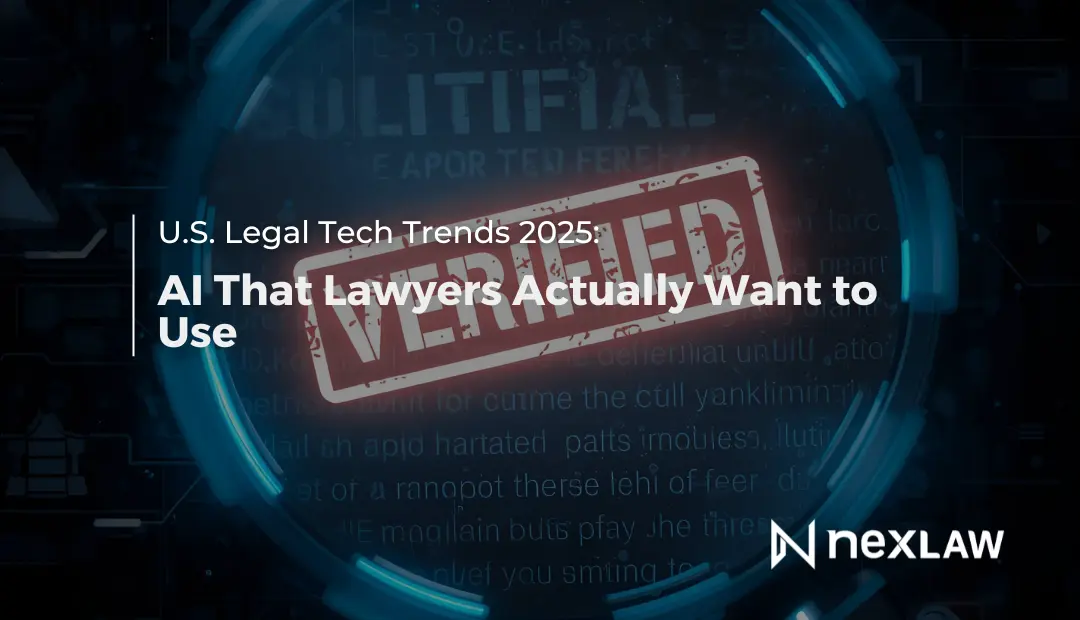
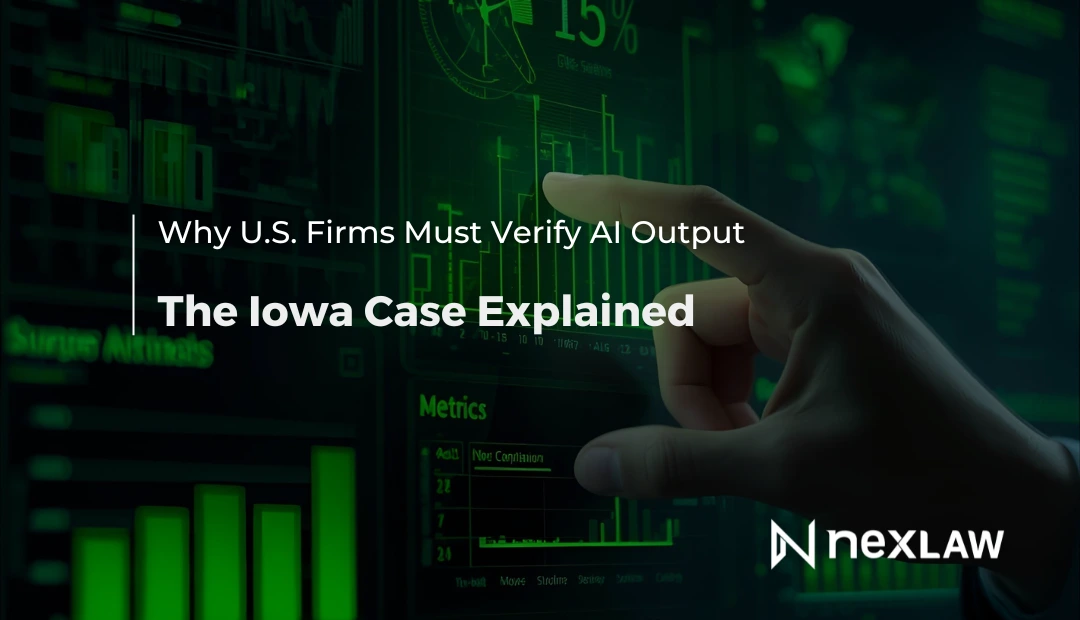
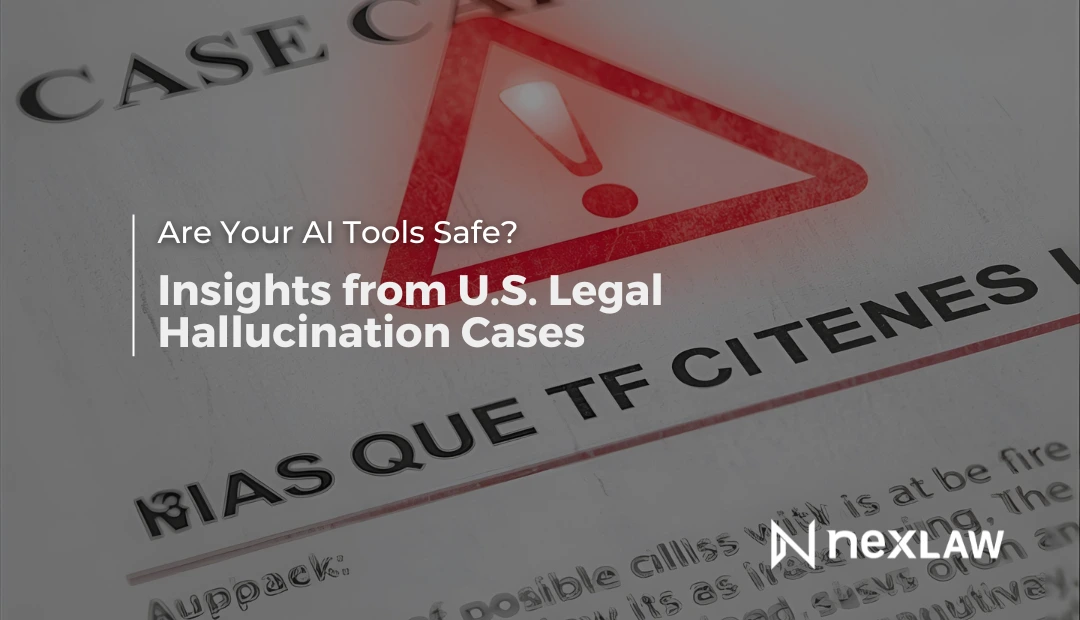
.webp)
